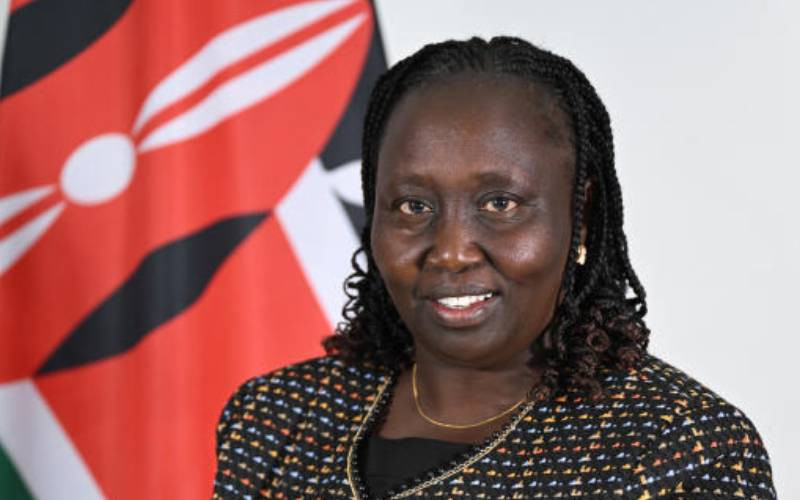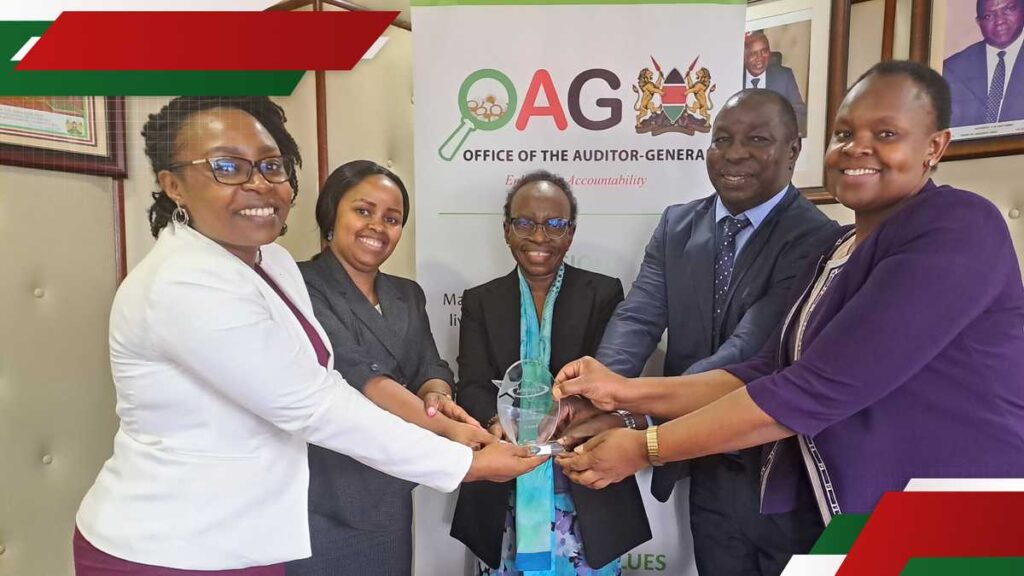Women Enterprise Fund has disbursed Sh 941.9 million to 18,955 women groups across the country since its January 2023,
The Women Enterprise Fund has been issuing loans manually since September last year after experiencing digital lending challenges.
According to Gender, Culture, Arts and Heritage Cabinet Secretary Hannah Cheptumo, the fund reverted to manual lending after the Advisory Board sought President William Ruto’s permission through the Cabinet Secretary to revert to manual lending, which was granted in September 2024.
The shift, Nominated Senator Catherine Mumma observed led to the scrapping of credit scores for groups that had built their credit scores over the years dating back to long before the digitization of the Fund.
The CS said the Fund has acknowledged the valid concerns raised by long-standing women groups regarding loss of credit history and scores built over several years, particularly before the digitization phase.
She appeared before the Senate plenary to answer questions where she disclosed that said that the Fund has disbursed Sh 457.4 million to 1,180 groups, benefiting 12,538 members under the revised Constituency Women Enterprise Scheme.
“The Women Enterprise Fund had lent to 136,499 groups since inception but only 18,955 had borrowed under digital loan product for the three products that were on offer, presumably the rest of 117,544 groups had opted out due to the limiting loan amounts and shorter repayment period,” said Cheptumo.
Mumma had sought to know how the Women Enterprise Fund performed in providing affordable and accessible loans since the digitization exercise initiated in 2023 and data of groups that have benefited per county.
“The Fund has integrated historical loan performance data from pre-digitization and digital records into the Banker’s Realm System to ensure that groups with strong repayment histories are recognized and rewarded through improved loan access, faster approvals and ability to reinstate previous loan limits, ” said Cheptumo.
She pointed out that the fund has reinstated the tiered lending structure, allowing groups to progress based on their historical performance with groups that had advanced to higher cycles before the digitization of the lending being re-assessed and reinstated to their previous cycles.
Cheptumo told the Senate that the legacy groups with established track records are being fast-tracked through manual verification, including physical vetting by Credit Assistants to restore their access to credit without penalization with a structured communication and engagement strategy initiated to inform groups of their options.
Mumma also asked the Cabinet Secretary what the Ministry is doing to ensure women entrepreneurs who wish to do business outside of groups are not discriminated against when it comes to accessing Women Enterprise Fund loans.
“ My Ministry, through the Women Enterprise Fund has developed individual loan products tailored to meet the needs of women entrepreneurs who operate outside group models since it is common that not all women operate in groups, ” said Cheptumo.
She said the products will consider business registration or proof of income instead of group guarantees, Scalable limits based on individual repayment capacity and customized training and financial literacy support with the products having been approved in the Credit Policy and will be rolled out progressively in the next financial year subject to availability of funds.
Stay informed. Subscribe to our newsletter
Cheptumo said the Women Enterprise Fund is engaging Banks and Savings and Credit Cooperatives Organizations to co-design individual credit products that are accessible, affordable, and scalable for women with these partnerships allowing for shared risk and improved loan management infrastructure.
Kisumu Senator Tom Ojienda asked what factors have been identified as the major causes of the recent surge in Gender-Based Violence cases, including the alarming rise in femicide incidents, which reached at least 170 cases in 2024 which was a 79% increase compared to 2023.
“The recent surge in Gender-Based Violence and femicide in Kenya has escalated into a national crisis, prompting urgent calls for comprehensive action pointing out that between August and October 2024 alone, at least 97 women were killed in gender-related murders,” said Cheptumo.
She said addressing this multifaceted crisis requires concerted efforts to challenge societal norms, strengthen legal frameworks, and provide comprehensive support to survivors stating that only through systemic change and sustained commitment can Kenya hope to reverse the rising tide of GBV and femicide.
Cheptumo said that societies that prioritize male dominance and control over women often normalize violence with harmful traditional practices such as child marriage and female genital mutilation, which can contribute to violence just like cultural taboos often prevent survivors from speaking out or seeking help.
The Cabinet Secretary pointed out that weak enforcement of GBV laws always makes perpetrators often go unpunished due to corruption, poor policing, or lack of evidence while Inadequate protection mechanisms like lack of shelters limited legal aid, and psychosocial support services are also to blame.
The Cabinet Secretary said many police officers, prosecutors and judicial officers lack specialized training in handling GBV cases which leads to mishandling of evidence, insensitive treatment of survivors and poor case outcomes.
Cheptumo said that critical institutions such as police stations, gender desks, shelters, and forensic labs are under-resourced limiting their ability to respond effectively to GBV incidents, especially in rural and marginalized areas.
“Corruption within the justice system often leads to the dismissal or manipulation of GBV cases. Perpetrators may bribe officials to avoid prosecution, while survivors may be coerced into withdrawing cases,” said Cheptumo.
The Cabinet Secretary said that Kenyan courts are overwhelmed with a backlog of cases, leading to significant delays in the resolution of GBV-related matters with Survivors often losing hope or dropping cases due to the prolonged wait for justice.
Cheptumo pointed out that Institutional personnel may hold patriarchal or victim-blaming attitudes, which influence their willingness to act decisively on GBV cases with such norms often resulting in the trivialization or dismissal of complaints.
She said there is no comprehensive, centralized system for collecting and managing GBV data across institutions hampering evidence-based policymaking and the monitoring of enforcement effectiveness.

























